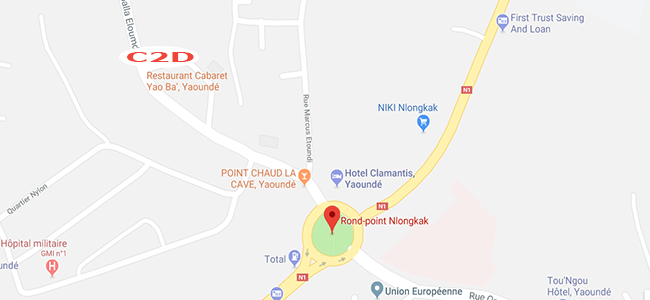Supporting Regional and Local Authorities to make them partners and actors in sustainable local development
The National Participatory Development Programme (PNDP) is a national rural poverty reduction initiative set up by the Government in 2005, with the technical and financial support of all development partners. Aware of the risks and uncertainties surrounding the State budget and the difficulties of intervening everywhere at once, the Government has designed this multi-donor programme to encourage local authorities to take charge of their own affairs in a spirit of financial empowerment.
Based on three main areas of intervention, to wit, support for the financing of micro projects resulting from Municipal Development Plans, protection of vulnerable socio-economic groups and support for Municipal Contracting Authority, the programme covers the ten (10) regions of the country.
As the process of empowering municipalities and communities is ongoing, the assessment at the end of the ten years of implementation of the programme with C2D funds shows that:
PAGFI:
The Financial Governance Support Project 2 aims to strengthen the State's capacity to control and monitor the execution of its budget. As such, it supports the implementation of Axis 3 of the Global Public Finance Management Reform Plan adopted in December 2019, and participates in the operationalization of the transposed CEMAC directives. More specifically, PAGFI 2 aims to ensure that the State has at its disposal, at the appropriate time, the necessary cash resources to meet its budgetary commitments; and publishes fair accounting and budgetary information reflecting a true and fair view of its financial situation. To support these objectives, PAGFI 2 ensures that reform is facilitated by change of conduct and an appropriate fund management system.
TRANSFAGRI:
The Integrated Programme for the Development and Processing of Agricultural and Agri-Food Products aims to boost the agricultural and agri-food sectors through the development and sustainability of a service ecosystem for the benefit of local economic actors (SMEs and CIGs/cooperatives). Its areas of intervention include non-financial services and enterprises by strengthening the activities of the SME Promotion Agency (APME) in favour of SMEs in the agri-food sector; financial services to enterprises by contributing to the operationalization of the national strategy for inclusive finance (SNFI) to improve access to finance for businesses in rural areas; Skills development through the continued deployment of vocational training centres in public/private management, particularly in secondary cities, and support for the establishment of a steering and financing mechanism for vocational training to ensure its quality and sustainability; and operational synergies between public policy mechanisms for stakeholders in the development and processing of agricultural and agri-food products.
PDP:
The storm drainage project referred to as PDP in the city of Douala is part of the government's strategy to improve access to sanitation infrastructure in urban areas. Launched in August 2012, it is being implemented through three major axes: limiting floods, stagnant water and erosion areas; improving the living conditions of residents of several disadvantaged neighbourhoods adjacent to drains; and building the capacity of the Douala City Council staff in the sanitation sector.
C2D Urban: Meeting the challenge of urban development and land use planning in a country that has one of the highest rates of urbanization on the continent. It was therefore necessary not only to support the growth of cities and contribute to the development of the industrial sector, but also to promote the emergence of peripheral conurbations and the growth of medium-sized or secondary cities in order to structure economic activities in the urban space and contribute to the development of the surrounding rural areas. In terms of urban development, the first C2D Urban made it possible to support the Urban Communities of Douala and Yaounde in the rehabilitation and improvement of their road networks and the opening up of neighbourhoods.
C2D –Regional Headquarters: Aimed at improving the living conditions of the population in the country's three major crossroads cities, notably Garoua for the northern region, Bafoussam for the west and Bertoua for the east. The programme is structured in two components: the Priority Investment Programme (PIP), which covers all infrastructure investments to be made in the beneficiary cities; and institutional support and capacity building aimed at raising the level of technical services of the Urban Communities in the above-mentioned cities through the implementation of city contracts. In addition, the cities of Bamenda and Maroua have been chosen to benefit from the urban investments of the 3rd C2D.
C2D - Road programme: Raising the level of investment in road infrastructure was another major focus of C2D. Given the significant needs in this area, the choice in the first C2D was to meet the pressing needs of opening up rural areas, which are essential for the creation of economic activities. The orientations of the road sector have focused on the rehabilitation and maintenance of the existing network, followed by its extension and development. Thus, in the first C2D, the choice was to invest in the improvement of interurban roads and rural tracks in coastal regions. The second C2D gave priority to the contribution for the construction of the second bridge over the Wouri, which is of undeniable interest for the development of the economic capital and contributes to reducing traffic congestion leading to the South-West and West regions.
FIND OUR HEADQUARTERS

Contact information







